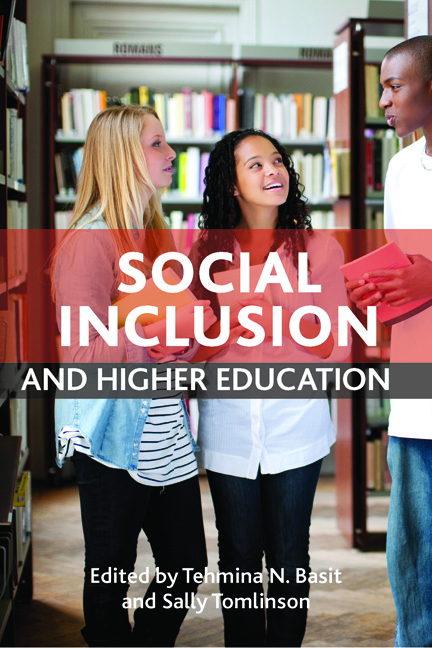one - Capitals, ethnicity and higher education
Published online by Cambridge University Press: 01 September 2022
Summary
Introduction
Savage, Warde and Devine (2004) argue that if we accept the shift in definition of class as macro-relationships such as exploitation to the possession of resources by individual actors – as many sociologists have done – then an argument can be made for the importance of concepts like cultural capital. They argue: ‘If social class is a matter of categories of people accumulating similar volumes and types of resources, and investing them in promoting their own and their children's life chances, the metaphor of capital is helpful’ (2004, p 7). I find this conception of social class as a likelihood of members achieving certain socio-economic goals (eg sustaining a position in or entering certain kinds of occupations) helpful. For the idea of class as life chances means that the definition of a class system depends not just on the existence of a hierarchy of classes, but on the probabilities of movement between classes. I also find the metaphorical extension of the idea of capital beyond the financial helpful. Yet, I want to argue here that both class and a Bourdieuian concept of cultural capital have certain important limitations in that neither of them is able to deal sociologically with some contemporary ethnic phenomena in relation to resources, capital and the likelihood of mobility.
This chapter arises in the context where, among sociologists, class is seen to be a much more substantial concept than ethnicity (see eg Fenton, 1999, 2003); where the influence of Bourdieu in the sociology of education is immense (Reay, 2004) and is believed to be transferable to ethnicity studies (May, 1999); and where the concept of cultural capital is enjoying a currency and an expectancy among those who believe that cultural pursuits have something to contribute to the amelioration of social exclusion. I want to challenge these positions by focusing on a major empirical question: why are non-white minority ethnic groups in Britain so over-represented in applications to and among students in higher education? The fact that they are is so counter-intuitive that while British sociologists have developed several lines of inquiry to explain the scholastic underachievement of non-whites (a phenomenon that has failed to occur, except in pockets), there are no theories to explain the phenomenon that has occurred. Initially, one might expect that this phenomenon might be most amenable to a cultural capital class analysis, given that it is about the acquisition of credentials for upward mobility in a stratified society and, after all, ethnicity is something to do with ‘culture’.
- Type
- Chapter
- Information
- Social Inclusion and Higher Education , pp. 17 - 40Publisher: Bristol University PressPrint publication year: 2012

